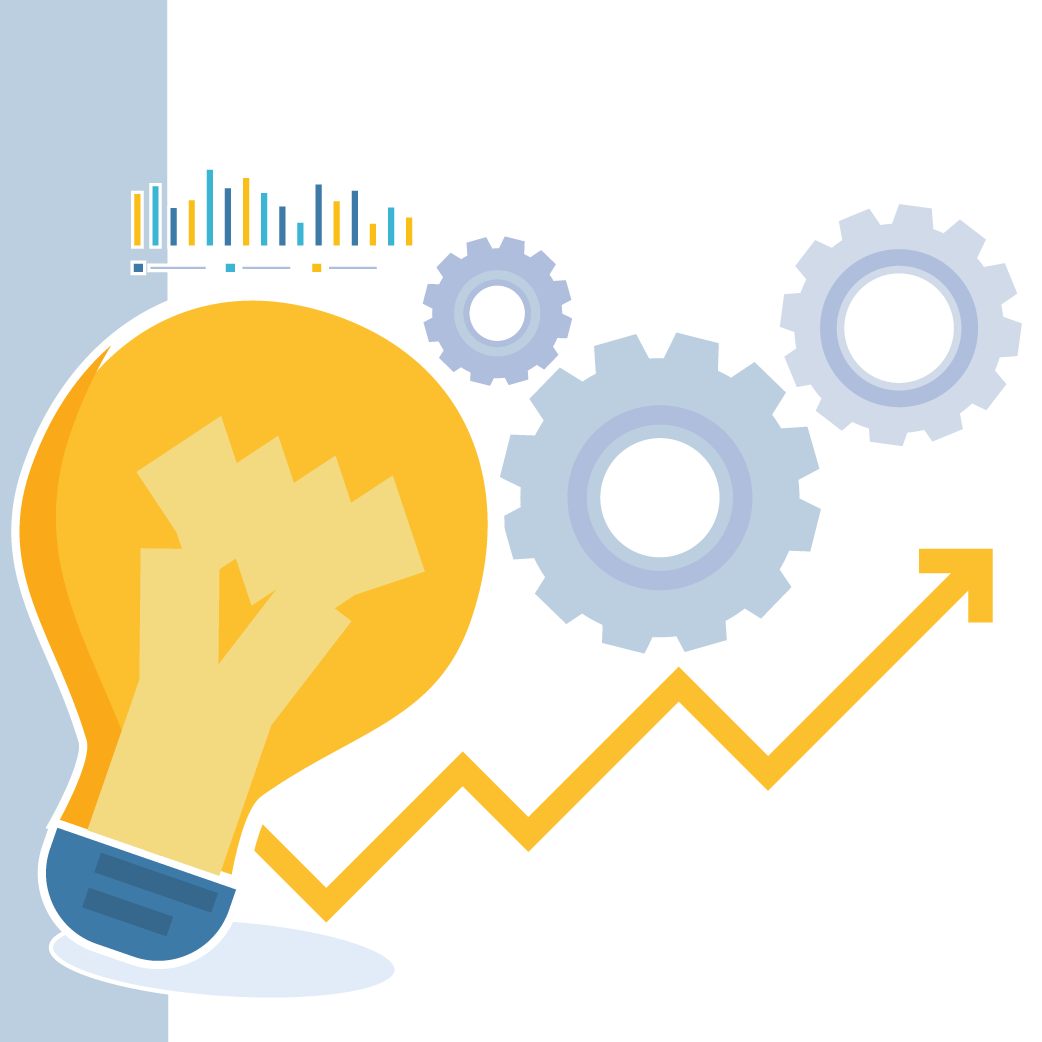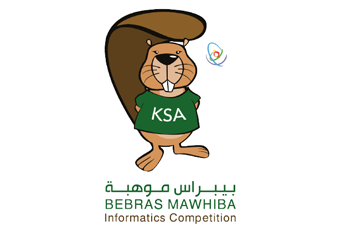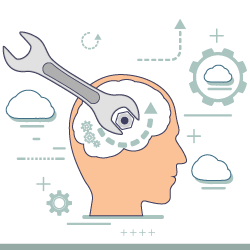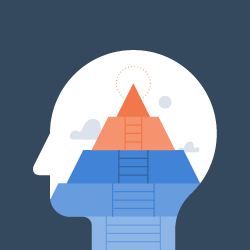An experimental case study of gifted students in pre-college research and engineering projects

Dr. Mark W. Oleksak
Creativity
29
This is the first of three articles exploring the experiences of gifted Saudi students in pre- college research and the profound impact it has had on their lives. The focus will be on the general expectations of their journey , the challenges they faced along the way, and how , as exceptional students , they found creative ways to overcome and learn from those challenges .
I first met Wad Al-Saadoun two years ago at a science research workshop (Ebd3 ) in the Eastern Province. I immediately recognized that she was an outstanding student with the potential to have a promising future in a STEM discipline . Her actions at the time reflected her ambition and clear interest in her project. Below is a glimpse into her scientific research endeavors , along with a comprehensive overview of the experience .
the story
I always tell students that the best way to communicate a research or innovation project idea is to tell a story, because this is how humans have effectively communicated information for centuries. This educational endeavor has certain components that allow for a comprehensive narrative that captures the audience’s interest. The narrative of a gifted student navigating a journey through the research process is powerful because it involves so many character-building components. By posing the research question , reviewing previous research , testing and experimenting , analyzing data, and communicating , it all provides a cohesive and compelling narrative .
She has put in countless hours of work on this endeavor over the past two years , and has an amazing experience to share. Her ability to think creatively, coupled with her perseverance , has been the foundation of a successful project. Her accomplishments have not been about winning competitions , but rather growing exponentially as a student and an individual . Below are some Q&As from our interview with Wed , where we highlight the benefits she has gained from the research project process .
the interview
When did you first become interested in STEM education and research?
“ Growing up I was always curious about why everything is the way it is , but as a kid I couldn’t figure it out. When I got to middle school I entered a state competition where I had to write a research paper , and I remember my class was on energy or something like that. Specifically the paper was about conservation of energy , and it was interesting to me because it felt so complicated yet so simple! I didn’t win or move on to the next stage of that competition , but I felt like this was something I didn’t know as a kid , it was the ability to participate in what ’s around me by working in STEM .”
What advice do you have for moving from interest to actual lab work?
“In my case , I was fortunate that my school started a program that connected students with mentors from KFUPM because my school was part of the KFUPM campus. But there are many students who worked independently without their school , for example with a family member , and some universities connect directly to centers , and others join Mawhiba’s summer research programs. There is no right or wrong choice here and it is all about what works best for you and your project . ”
When you first started your research project , what were your main expectations?
“At first I was excited to start working in the lab , but I expected my project to be very smooth and on track. I also thought I had a good background in my project area which was mainly in energy .”
note
To this point , it is especially important that the student chooses a project in his or her area of interest. It is clear that W. was interested in energy and was excited to explore the possibilities of the project in it. In fact , she was so focused on it that she decided to continue the project in her second year , introducing new variables into the experimental design. Always remember to reach out and ask questions , and to investigate all possible opportunities for the project.
Why did you decide to work on this project concept for another year?
“I initially chose this subject because of my love for physics and the belief that renewable energy research has a major impact on our world today. In my opinion , wanting to be part of the solution to the problems we face today is truly noble.”
note
Students who have a good project development experience are students who can apply it to the real world , an experience that takes them outside the classroom and away from textbooks , and gives them the opportunity to be part of an experiment trying to solve a problem.
How is project development different from textbook learning?
“Having to know the science behind an experiment instead of reading in a textbook and learning it in a classroom is an amazing experience, because during a classroom we read a textbook that gives us the end result of an experiment or a simplified law in a page or so that we memorize to take a test and move on , which I really feel kills our imagination .”
note
As with any project-based endeavor , there will be obstacles to overcome. During a science project , there will be many obstacles and they must be analyzed to find the best possible solution path.
What were the biggest challenges you faced when conducting research?
1. At first when I started reading about my field of study , my first impressions were that it was really difficult to read a scientific paper , especially because in school all STEM classes were in Arabic.
2. The second thought that came to mind was that this is a huge field! So I was afraid that my study would not be as original as I needed it to be.
3. I worked with a TE mentor sometimes for hours or days and sometimes the results were not good.
note
These are all applicable points , and ones that most students will encounter when starting and working on a project. The hardest thing to understand is that in research and innovation , we don’t always know what the answer will be , what the results will be. It’s all about testing a hypothesis or testing a solution , over and over again. It’s very different from reading a textbook and taking a test with questions that have specific answers. So focusing these research endeavors on hard work and vision takes us toward discovery.
How did you overcome the three challenges mentioned above?
1. For the first challenge, I would translate scientific terms or phrases that were on a paper I was reading into Arabic . If it was a new topic , I would watch a video about it , and if I didn’t understand it at all, I would ask my teachers to explain it .
2. In the first week I made a mind map of each type of supercapacitor. I used this map in both years of working on my project , and it was really helpful.
3. Trying to understand what went wrong can take some time , but it's important to be patient , and trying different approaches to the experiment helps. For me, when a sample gave a bad result , I would draw the exact layers of that supercapacitor in my log book to see the change over time. So if something went wrong in the test , I would still consider it useful .
note
The entire journey is a learning process that we hope will be used in future endeavors in STEM education and even in their careers .
What important skills have you learned during the entire journey , both academic and personal development ?
1. Scientific Process: During the first year , it was about building the idea with my mentor and trying to understand all aspects of it deeply by learning math, physics and chemistry. That year I learned how to complete a scientific paper and how to become a researcher . The second year was when I really felt that my project reached the 100 % I was aiming for . That year I learned how to think of a way to take my project to the next level with the help of my mentor .
2. Personal Development: I learned how to be independent , manage my time , and interact with different people. It was also great to see how many people share my passion for research and STEM in general.
note
A creativity event provides a great opportunity for students to share their work with others , meet students from all over the country and experience the amazing world of research.
What is your best memory of the entire search process? Did it have any impact on your next educational steps (majors , internships , clubs , etc.)?
“There are so many great memories . One was at ISEF 2019 Grand Prix day and we would wait for any of our names to be said even if we couldn’t hear them because we would start screaming and cheering as soon as we heard a name “from which city in Saudi Arabia”. The best part was that even if one of us won , we were all happy , when all our mentors from Mawhiba came to congratulate us, we were so happy .
Of course these memories had a huge impact on my life because they gave me a real glimpse into the world of research , they opened doors for me when I entered the Generations Space Program after that, which was amazing . I also got a scholarship for the Oxmedica program in London and also a fellowship with Co-create 2020 in the HCI lab . ”
After completing the Pre- College Research Program , did the experience meet your expectations listed in Question 1? Exceed them ? In what way ?
“It definitely exceeded my expectations on every level , it was a life changing experience that I will never forget. In the lab , the experiments didn’t go as smoothly as I thought they would , there were many tough days but I truly understood that hard work pays off in the end. The moral lesson I learned is that no matter how much I know about a subject , it is really small compared to the amount of information I don’t know . ”
NB
This is a powerful statement about the pre-college research experience and how it impacts young talented students in a country. The lessons learned are not only useful during the process , but also for the future period in college studies and beyond.
What would you say to young Saudi men and women who are considering participating in scientific research competitions? What impact could it have on their lives and careers?
“As young Saudi students , we have a golden opportunity to make a difference in our communities by trying to invent new effective ways to have a better life. Participating in competitions like “Ibdaa” gives our generation a voice to fix what we know is wrong around us . Entering Mawhiba programs and competitions opens your eyes to the horizons , so don’t miss this opportunity . ”
Lessons learned
This interview was very insightful and provides a glimpse into the experience of a talented student conducting a high-level research or engineering project. As mentioned , I learned a lot during this journey . The main lessons I imparted to other students can be summarized as follows :
1. Try to do extracurricular activities , such as a research project . This will provide an exceptional practical atmosphere and allow you to engage in an area of your interests.
2. Follow the processes and roadmaps provided to you, as this will help with important personal and academic skills that you can use for the rest of your life.
3. Ask questions .
4. Never give up. In research and engineering (or any project) you will encounter many obstacles and challenges , and it is very important to face them head on and find the best possible solutions. A determined student will not be stopped by the obstacles in front of her because she will always find a way to overcome these problems in order to reach the goals set at the beginning. This is a trait that can be learned and followed, and which will provide successful results in the journeys that each individual chooses in life.
Did you benefit from the information provided on this page?
visitors liked this page


